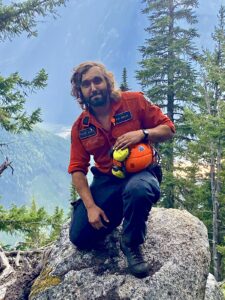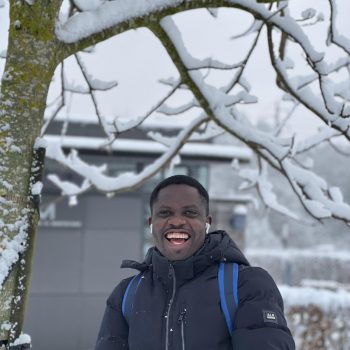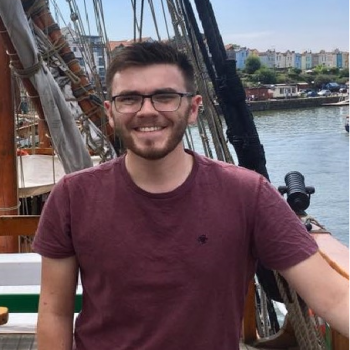
Zak Derler
- University of Birmingham
- Investigating extreme wildfire phenomena and fire-weather interactions in a changing climate
- Professor Nick Kettridge, Dr Kerryn Little

Extreme wildfire events and extraordinary fire-weather phenomena are increasing in frequency, escalating in their intensity, and expanding into new regions, reshaping what fire science has traditionally considered typical. Yet the early stages of these events, the first operational periods when escalation pathways form and suppression success is still realistic, remain among the least understood areas of wildfire science. This gap limits our ability to anticipate escalation, constrains forecasting, and leaves communities and responders exposed to rapidly shifting conditions.
My project examines how atmospheric processes, fire-weather interactions, and key behavioural phenomena shape early-stage wildfire escalation. Through climate analysis and satellite-derived observations, I am investigating how extreme fire behaviour emerges in its initial phase and the climatological and meteorological conditions that drive anomalous fire phenomena.
My career spans roles in academia, operations, and communications, each one gradually shaping the direction that has led me toward wildfire science.
Before my PhD, I served as an Initial Attack Wildland Firefighter with the British Columbia Wildfire Service, responding by helicopter to new wildfire starts in the remote mountains of western Canada. Working in this high-stakes environment, where fire behaviour could shift within minutes, gave me a frontline perspective on climate and environmental dynamics that I now bring into my research.
Alongside firefighting, I worked in climate journalism and science communication as an Associate Editor with Climate Home News and as an investigative journalist for DeSmog, where I focussed on disinformation and climate science denial. I also held the role of a research laboratory technician at the University of Liverpool, after completing my MSc in Environmental Sciences with a focus on environmental archives and modelling.
Together, these experiences have given me a broad view of the climate and environmental landscape and have led me directly to the research questions I am now pursuing.
I have always wanted to pursue a PhD, but I never felt like I had a niche that was genuinely mine until I lived in rural western Canada and experienced wildfire both as a resident and as an Initial Attack firefighter, while also seeing its growing impacts on my family in Turkey. Those experiences showed me wildfire from very different environments and social contexts and pushed me toward studying fire in a way that reflects both the scientific questions and the realities faced by the communities affected.
A PhD allows me to bring together my operational background, academic training, and climate communication experience, and to take a focused look at a part of wildfire behaviour that I want to understand properly. It gives me a path to contribute in a meaningful, interdisciplinary way to a field that is rapidly becoming one of the defining hazards of the modern climate era.
CENTA appealed to me because of its structured training, its cohort environment, and the opportunity to be part of a wider research community rather than working in isolation. It felt like a strong setting to develop as a researcher.
My supervisors at the University of Birmingham already have an established connection with Thompson Rivers University in British Columbia, and my position gives me the opportunity to help strengthen that link. I hope to contribute to building a more sustained transatlantic relationship between academia in both regions and the contrasting fire environments they are situated within.
I hope to build a career in wildfire science that supports communities living with fire across Canada. My aim is to contribute to research that improves how we interpret extreme fire behaviour and early escalation, and to ensure that understanding feeds into real decision-making on the ground.
I’m drawn to a path that connects academic research with practical impact: producing work that advances the science while also improving how fires are anticipated, managed, and prepared for. I want to work across fire-affected regions in Canada, help strengthen links between researchers and agencies and contribute to improving how wildfire behaviour is understood on the ground.



